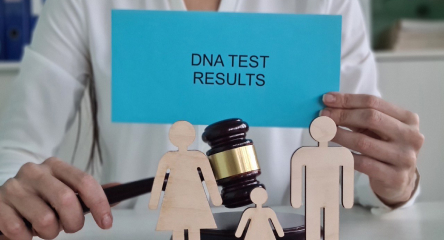Family Law
The law firm of Sandra Navarro-Garcia, P.A., understands the sensitive nature of family law cases and the emotional and financial toll it can take on a family and strives to resolve such cases expeditiously and with sensitivity to the goals of the family as a whole. If you are facing a family crisis and are unsure of your rights schedule a consultation with Ms. Navarro-Garcia in order to learn what your rights and responsibilities in the matter are thereby ensuring the best possible outcome for your case and your family.

Family Law
Guiding you through all family law issues with compassion and professionalism.

Dissolution of Marriage
In Florida, a divorce is called a dissolution of marriage and it can be filed by either spouse. When parties enter into marriage they often believe their union will last forever. Unfortunately, sometimes that is not the case. Divorce is a difficult matter to deal with due to the combination of emotional and financial issues that quite often arise during the proceedings. Every family is unique in its structure and goals, and as such so must the approach on how to handle their divorce case. The law firm of Sandra Navarro-Garcia, P.A., understands the great impact this matter will have on your future and is dedicated to providing you with professional, compassionate and personalized attention that will help you meet your goals and concerns.

Divorce in Florida
Florida is a no-fault divorce state. No-fault divorce means that the only reason a party has to allege as grounds for the divorce is that the marriage is irretrievably broken. Of course, other grounds can be raised such as the mental incapacity of a spouse when seeking an entry of final judgment of dissolution of marriage in Florida. The only thing that is constant in all divorce cases is that they are all different. This difference is most apparent when it comes to the time it takes to complete a divorce from the filing of the petition to the entry of the final judgment. If the parties are in complete agreement about all matters and there are no minor or dependent children, they can obtain an entry of final judgment within a very short period of time. However, if the parties are not in agreement then the whole process can last months, even years. The length of a divorce case also impacts the fees and costs a client will face during the process. Often when a person is either thinking of separating or is already facing a dissolution of marriage a great concern is the costs involved with the process. Clients are sometimes hesitant to seek legal assistance with their case because they do not believe they can afford it. Attorney fees can range widely depending on numerous factors, such as whether the divorce will be disputed or if the parties can agree on the majority of issues. Some divorce cases may be eligible for a simplified dissolution of marriage, while others require substantial litigation. Whatever the particular nature of your divorce case is, the law firm of Sandra Navarro-Garcia, P.A. can help you through the process.

Mediation
Mediation is the process by whereby a neutral third party called a mediator works to find a solution that is agreeable to both parties. Mediation is a great tool to use in order to keep legal fees and costs down and avoid lengthy litigation. The use of mediation can lead to the resolution of the majority, if not all of the issues in a pending divorce case. Agreements as to property division, child custody and support, and debt distribution can be reached via mediation. If you are able to successfully agree on the terms of your divorce through mediation, then you may file for an uncontested divorce thereby avoiding additional court hearings and additional legal fees and costs. Ms. Navarro-Garcia, Esq., is not a mediator but can represent you during the mediation process by advising you regarding your legal rights. Contact the law firm of Sandra Navarro-Garcia, P.A. and schedule your consultation in order to get more information as to mediation and your specific case.

Child Custody / Time-sharing
Dealing with child custody issues is usually the most emotionally draining part of the separation process between two parties, whether married or not. The stability and well-being of the child is the primary concern of the court and should be the primary concern of all involved. It is usually best if the parties can come to terms with an agreement, otherwise the responsibility of making the custody arrangements will fall upon the court.
Child custody and time-sharing matters are never easy to deal with, if you are currently facing such a situation Ms. Navarro-Garcia’s experience and compassion can help guide you through this process and assist in preparing an agreement that brings the family together, not apart.

Child Relocation
Even after the conclusion of a divorce, custody can remain an ongoing issue between parties. Sometimes one of the parents wishes to move out of the state where the original custody agreement established the child was to live. In these cases, additional litigation is required for the custodial parent to legally move with the child out of the state. The restriction the courts place on divorced parents is not as to moving, but rather as to the amount of custody they will retain over their child if they move. The situation of every family is different and of course, the most ideal situation is when both parents can agree to the relocation, however, if they cannot then court involvement will be required. When considering whether to allow a custodial parent to relocate the court will consider the reasons behind the move and whether ultimately the move will increase the child’s quality of life. The best interests of the child, not of the parents is the sole concern of the court. If you are planning to move or dealing with an ex-spouse who wishes to move out of the state with your child schedule an appointment with the law firm of Sandra Navarro-Garcia, P.A. who will help you assess the situation and guide you through the process.

Post-Judgment Modifications and Enforcements
Life is ever changing and sometimes changes to orders are needed. A Post-Judgment Modification is when the court changes a term(s) of a previous judgment. Post-Judgments routinely are used in matters involving spousal support and child custody or support matters. In matters related to a modification of an agreement regarding children, the court requires an order to approve any such changes. Changes or a modification to an agreement/order regarding the children must be shown to be in the best interest of the child. As to an ex-spouse seeking a change in spousal support, he or she must show that there is a reason to modify the court’s earlier order. There are times when one party in the case refuses to follow the orders of the court, be it by not paying child or spousal support, violating the visitation schedule set by the court, etc. In those instances, the court can order the non-abiding spouse to comply or face serious consequences. If you are in need of having changes made to a previously entered order or need assistance with the enforcement of an order, contact the law firm of Sandra Navarro-Garcia, P.A., to see what options are available to you.

Paternity Actions
When a child is born out of wedlock the need for a paternity action may arise in order to obtain support for that child. A paternity action is the process by which the parties obtain a legal acknowledgment that confirms that a parental relationship exists. In some situations such as when an acknowledgement of paternity is signed or when a child is born into an intact marriage the court will consider the purported father of the child as the parent and find that paternity has been established. There are of course other situations wherein the court may find that paternity has been established. If you are facing this situation and want an experienced attorney to assist you with this matter schedule a consultation with the law firm of Sandra Navarro-Garcia, P.A. and see what options are available to you.

Child Support / Alimony
In Florida when parties have children, the court can order the non-custodial parent to pay child support to the custodial parent. The court will consider the expenses, ability to pay, needs of the child and number of children to support when calculating child support. The court may also order one spouse to pay spousal support or alimony to the other spouse. The court will consider the length of marriage, standard of living during marriage, financial resources of the parties, ages and health of the spouses, earning capacity and education of both parties, contribution of each spouse to the marriage and all income sources amongst other factors when calculating alimony.

Prenuptial / Postnuptial Agreements
Engaged or newlywed couples believe their love is going to last a lifetime. However, that is sometimes not the case. Prior to entering into marriage many people choose to protect themselves by signing a prenuptial agreement. A prenuptial agreement is a binding agreement or contract entered into between the parties which dictates what will happen with assets, debts, etc., if the parties were to divorce. A prenuptial agreement serves to protect the financial assets acquired prior to and during the marriage by the parties. Prenuptial agreements also allow the parties to alter their respective rights as to how assets and debts will be divided, including property and debt acquired after marriage and whether or not spousal support will be given by one party to the other. Other provisions can be included as long as both parties are in agreement. Prenuptial agreements can be contested. Accordingly, the signing of a prenuptial agreement does not mean that you will not have to go through a contested divorce proceeding. However, if a prenuptial or postnuptial agreement is prepared correctly it minimizes the chances that a party opposing the validity of the agreement will be successful. The primary difference between a prenuptial versus a postnuptial agreement is when it is executed. A prenuptial agreement is signed prior to marriage, while a post-nuptial agreement is signed after the parties are married. The purpose of both agreements is the same. If you are seeking assistance with the preparation of a prenuptial agreement or to dispute the validity of one, contact Ms. Navarro-Garcia to schedule a consultation and let her years of experience and expertise bring you the peace of mind you seek.

Cohabitation Agreements
Cohabitation has become a more popular living arrangement for couples. Cohabitation is an arrangement where two people who are not married live together. The popularity of this living arrangement has also seen an increase in issues related to the commingling of property and debts. A cohabitation agreement is a legal agreement entered into by a couple, regardless of sexual orientation created to protect each party’s assets in the event of a separation. Florida law recognizes that an unmarried couple may agree to enter into an enforceable contract that establishes the rights and responsibilities of each partner should the couple separate as long as there is valid consideration apart from any agreement, express or implied regarding sexual relations.
A couple that chooses to cohabitate has none of the rights afforded to a married couple in Florida when it comes to property or support, regardless of the years spent together or whether the couple has children. If you and your partner are living together or are considering doing so contact the law firm of Sandra Navarro-Garcia, P.A. to schedule a consultation to discuss the benefits a cohabitation agreement could provide your family.

Name Change
Whether you wish to change your legal name due to divorce, marriage, or adoption the law firm of Sandra Navarro-Garcia, P.A., can assist you with the process. In order for a court to approve a name change in Florida a person must establish certain things such as residency in the county where the name change is sought, whether the person has had a prior name change, whether final judgments have been entered against him or her, if he or she has ever been arrested or charged with, pled guilty or nolo contendere to a criminal offense, regardless of the adjudication. There are additional requirements and forms that must be completed in order to obtain a name change. For further information and assistance with a name change contact the law firm of Sandra Navarro-Garcia, P.A.

Stepparent Adoption
Stepparent adoption is an important personal and legal step for a family. The legal process of adoption is similar to other adoptions in that it will require a background check and consent from the birth parent. In many instances the stepparent is already playing a parental role which begs the question of whether a formal adoption by the stepparent is truly necessary. A formal adoption by a stepparent means that his or her role will be recognized by the law. Adoption by a stepparent can have financial benefits such entitlement to insurance benefits or an inheritance. Aside from the financial benefits that can be derived from a stepparent adoption there are the obvious emotional benefits which include a sense of pride and stability for the entire family unit. If your family is considering a stepparent adoption contact Ms. Navarro-Garcia and let her guide you through the process with compassion and professionalism.

